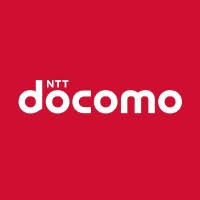Docomo said it is driving R&D in cutting-edge non-terrestrial network technologies that combine GEO, LEO and HAPS
Japanese telco NTT DOCOMO is currently focusing on demonstration tests and standardization efforts for 5G evolution and 6G technology with the aim of achieving a combination of advances in connectivity, including ultra-high speed, large capacity and low latency, the telco told RCR Wireless News.
With these tests and standardization efforts, NTT Docomo also said it aims to pioneer the use of new frequency bands, including terahertz frequencies, expand communication coverage in the sky, at sea and in space, provide ultra-low-energy and ultra-low-cost communications as well as achieve the capability of massive device-connectivity and sensing.
“In particular, Docomo is driving R&D in cutting-edge non-terrestrial network (NTN) technologies that best combine GEO, LEO, and HAPS. Geostationary orbit satellites (GEO), low-earth orbit satellites (LEO), and high-altitude pseudo-satellites (HAPS) have been used so far for communication, but while GEO and LEO cover wide areas, they tend to have relatively long one-way propagation times,” the telco said.
“In contrast, HAPS has a slightly smaller coverage area but also offers low latency, high throughput, which enables high-speed direct communication with smartphones. Focusing on HAPS, Docomo is collaborating with partners including Space Compass, NTT, Sky Perfect JSAT, NICT, Panasonic and AALTO to comprehensively address everything from aircraft acquisition to system standardization, antenna and base station development, and stratospheric radio wave propagation experiments,” it added.
Docomo said its future goals include the provision of signals in mountainous areas and under the sea, where radio signals currently cannot reach, and assisting rescues of people in distress and also to support new sensor and video-transmission businesses. Docomo also aims to support life-saving operations by enabling mobile communication in disaster areas.
Commenting on plans for 5G-Advanced (5G-A) technology, NTT Docomo highlighted that the company has been continuously enhancing 5G network evolution with 5G-A, adding that a key focus of the company is to improve uplink communication performance. “These improvements are essential to meeting the diverse demands of industrial applications, including high-reliability communication technologies and guaranteed communication quality,” the company said. “5G-Advanced brings several critical enhancements that allow for more reliable and higher throughput uplink communication, which is especially vital for industrial use cases where large amounts of data must be uploaded in real time. In addition to uplink performance improvements, 5G-Advanced incorporates innovations such as massive MIMO technology for handling greater data volumes and the use of AI/ML technologies to optimize network performance.”
The Japanese operator also noted that one of the most significant applications of 5G-Advanced is in the manufacturing industry, where real-time data transmission is essential for factory automation and quality control. With the improved uplink communication in 5G-Advanced, manufacturing plants can handle the vast amounts of data generated, the telco said.
According to Docomo, 5G-Advanced will significantly improve the automotive sector, particularly in autonomous driving and vehicle-to-vehicle communication. “Its enhanced uplink capabilities allow for faster, reliable data transmission about vehicles’ speed, position, and surroundings, promoting safer, more efficient driving. It also enables seamless interaction with smart traffic systems and urban infrastructures,” the telco said.
In the smart city space, the operator also highlighted that 5G-Advanced facilitates efficient urban management and environmental monitoring by improving communication between a wide variety of sensors and devices. “With real-time data uploads enabled by the enhanced uplink capabilities, cities can monitor traffic, air quality and energy usage more effectively, leading to more sustainable and well-managed urban areas,” said Docomo
“NTT Docomo’s 5G-Advanced developments improve uplink communication and network performance across various industries. These enhancements ensure reliable, real-time data transmission, meeting current and future industrial needs through global standardization efforts,” the telco added.

